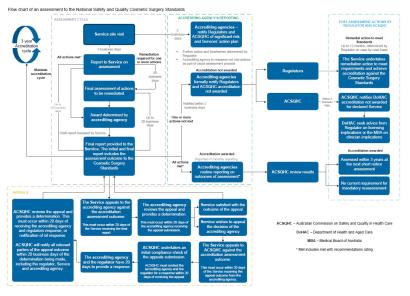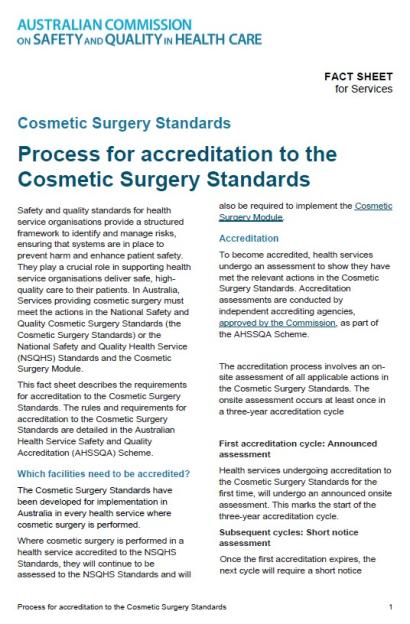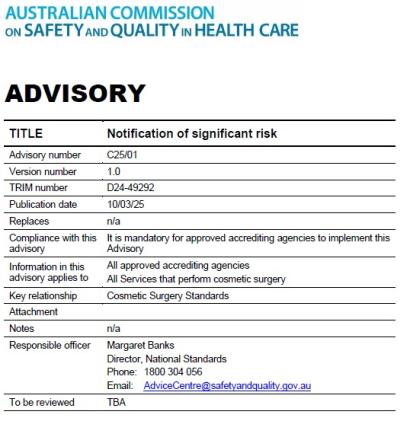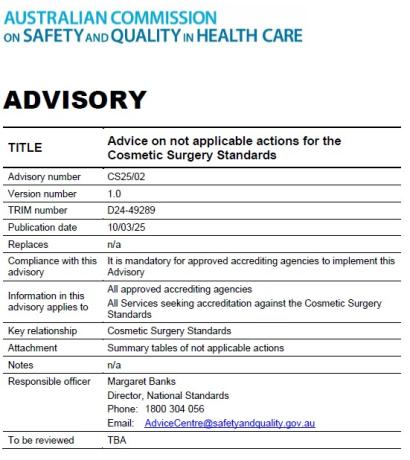Implementation of the Cosmetic Surgery Standards
The National Safety and Quality Cosmetic Surgery Standards (Cosmetic Surgery Standards) have been developed for implementation in Australia in every Service where cosmetic surgery is performed.
Independent assessment against the Cosmetic Surgery Standards, and the awarding of accreditation, provides confidence to the community that a Service where cosmetic surgery is performed has the safety and quality systems and processes in place to meet expected standards of care.
The Cosmetic Surgery Standards
The Cosmetic Surgery Standards are person-centred and describe the processes and structures that are needed to deliver safe and high-quality clinical care.
Where cosmetic surgery is performed in a Service that is not accredited to the NSQHS Standards, that Service will be required to implement all of the actions specified in the Cosmetic Surgery Standards.
Accreditation
Accreditation enables the collection and reporting of data that can be used to inform decisions about safety and quality improvements nationally, by states and territories and at a local level. It can be used to improve transparency and support patients to make informed decisions about where their surgery is performed.
The Australian Health Service Safety and Quality Accreditation (AHSSQA) Scheme provides the national coordination of accreditation processes. Collecting and analysing feedback on the lessons learnt through accreditation is an essential part of quality improvement. The Commission uses feedback to identify areas where health services may require additional support or tools and to maintain and update the safety and quality standards developed by the Commission.
Implementation resources
The Commission has developed a range of resources to support implementation of the Cosmetic Surgery Standards.
Factsheets
Advisories
Monitoring Tool
Factsheets
Advisories
Monitoring Tool
More information
For questions and feedback regarding implementation of the Cosmetic Surgery Standards please contact the Safety and Quality Advice Centre via AdviceCentre@safetyandquality.gov.au or 1800 304 056.






